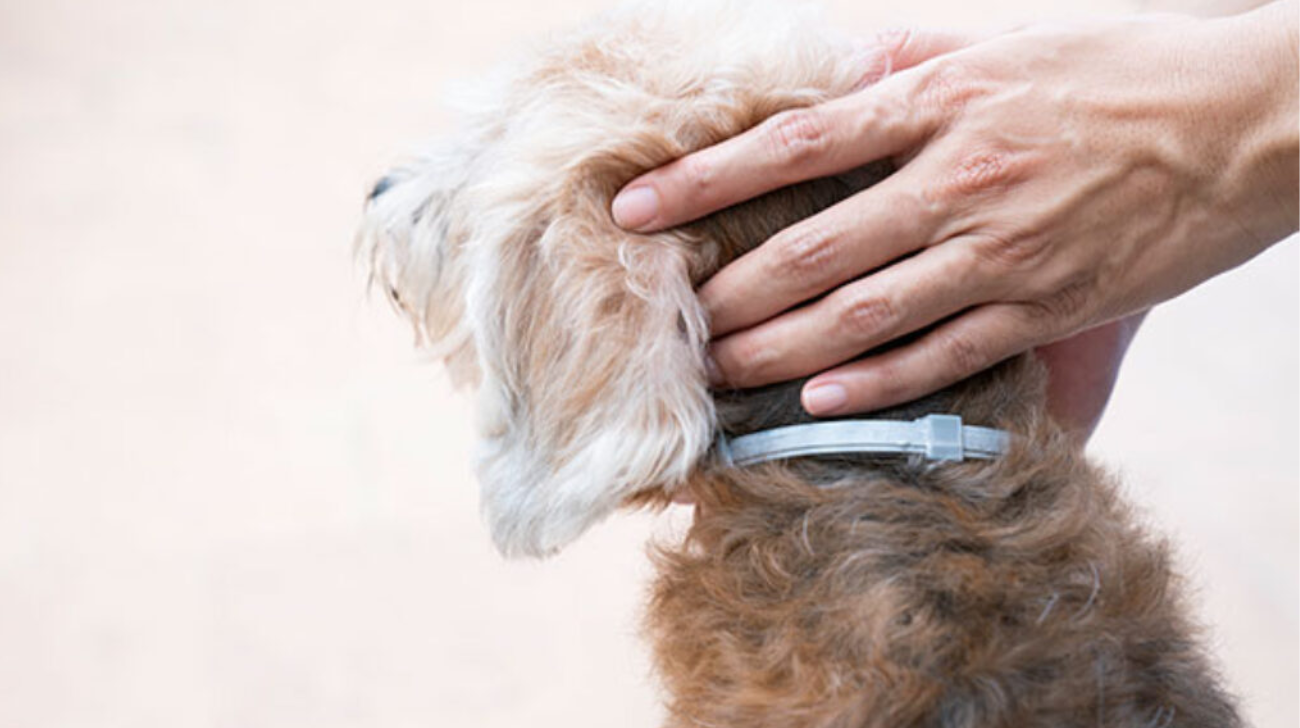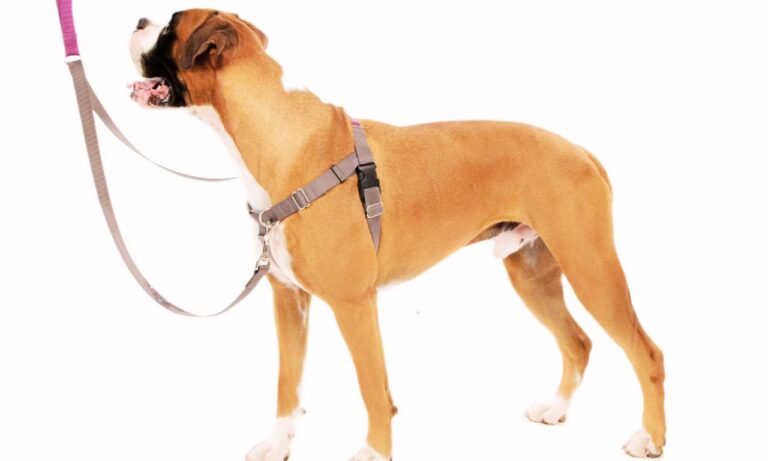Fleas are a common nuisance for dogs and their owners. They cause irritation, itching, and can lead to more serious health issues. Many pet owners wonder, “Do flea collars work on dogs?” This article explores the effectiveness of flea collars, compares them with other flea treatments, and provides expert tips to keep your furry friend pest-free.
Check out the best dog collars for Border Collie to find durable, stylish, and comfortable options for your active dog.
Blog Highlights
ToggleUnderstanding Flea Infestations
Fleas thrive in warm, humid environments. They can quickly infest your home, causing discomfort for your dog and you. Fleas can lead to allergic reactions, skin infections, and transmit diseases. Therefore, effective flea control is essential for your dog’s health and well-being.
What Are Flea Collars?
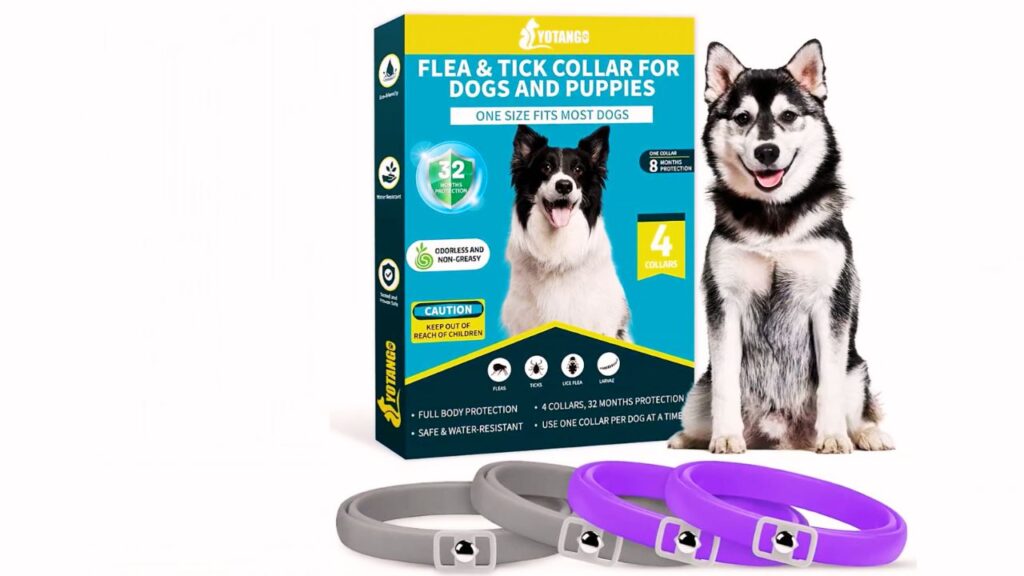
Flea collars are wearable devices designed to protect your dog from fleas and other pests. They release active ingredients that repel or kill fleas, ticks, and mosquitoes. Flea collars are a convenient and long-lasting solution for pest control.
How Do Flea Collars Work?

Flea collars work by emitting a steady stream of active ingredients. These chemicals spread over your dog’s skin and coat. They kill adult fleas and prevent flea eggs and larvae from developing. Some collars also repel mosquitoes, providing additional protection.
For guidance on choosing the right collar size for an Airedale puppy, check out this detailed guide.
Do Flea Collars Work on Dogs?

Yes, flea collars can be highly effective when used correctly. They offer long-term protection, often lasting up to six months. Flea collars are especially beneficial for busy pet owners who prefer a low-maintenance solution.
Studies and Research
Research indicates that modern flea collars are as effective as other flea control methods. Studies show that high-quality flea collars can significantly reduce flea infestations on dogs. Consistent use, as per the product instructions, enhances their effectiveness.
Types of Flea Collars
There are various types of flea collars available, each with different active ingredients and features. Understanding these types helps you choose the best option for your dog.
Chemical-Based Collars
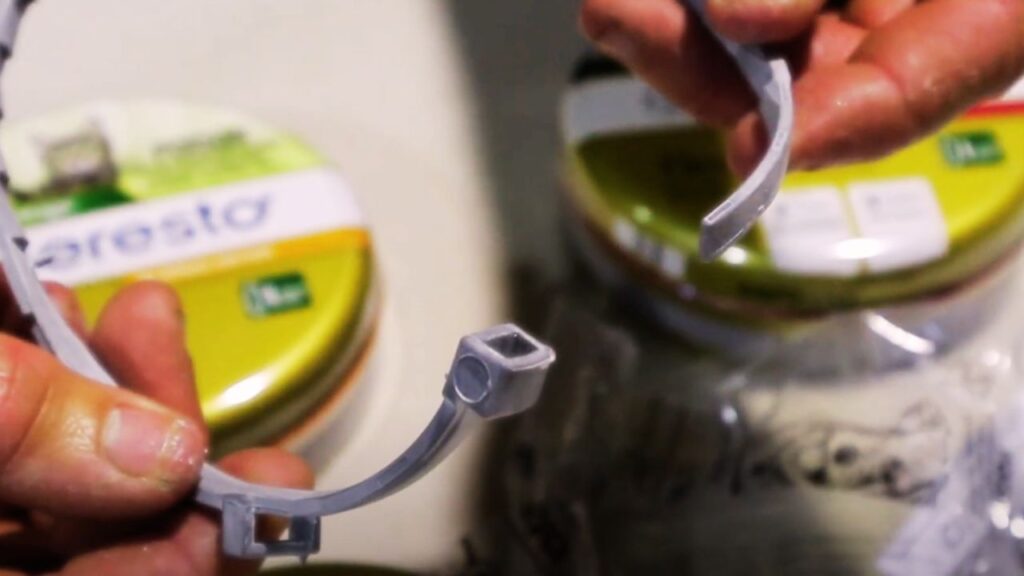
These collars release chemicals that kill and repel fleas and ticks. Common active ingredients include:
- Imidacloprid
- Flumethrin
- Deltamethrin
These chemicals are safe when used as directed and provide long-lasting protection.
Natural Flea Collars
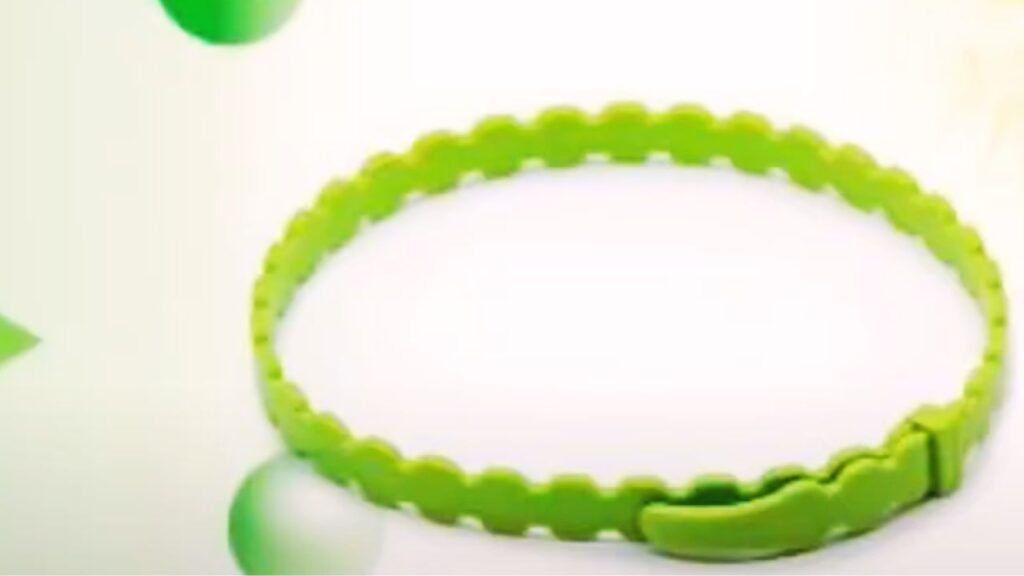
Natural flea collars use essential oils and other natural ingredients to repel pests. They are ideal for pet owners who prefer chemical-free solutions. While they may be less potent than chemical-based collars, they are effective for mild infestations.
Dual-Action Collars

Dual-action collars not only kill adult fleas but also prevent the development of flea eggs and larvae. These collars contain insect growth regulators (IGRs) that disrupt the flea life cycle, ensuring comprehensive protection. For insights on whether Airedales are good off-leash, explore this comprehensive article.
Advantages of Flea Collars
Flea collars offer numerous benefits that make them a popular choice among pet owners.
Long-Lasting Protection

Flea collars provide protection for several months. This eliminates the need for frequent reapplication, unlike spot-on treatments that require monthly use.
Cost-Effective

Flea collars are often more affordable than other flea control methods. They offer a cost-effective solution for long-term pest prevention.
Convenience

Using a flea collar is simple. You attach it to your dog’s neck, and it works continuously. There’s no need to remember monthly applications or deal with messy sprays and shampoos.
Continuous Protection

Flea collars provide 24/7 protection. They are effective whether your dog is indoors or outdoors, ensuring your pet remains pest-free at all times.
Additional Benefits
Some flea collars also repel mosquitoes, providing added protection during outdoor activities. This feature is especially useful in areas prone to mosquito-borne diseases. Discover the benefits of using a harness by reading this guide on should a Collie wear a harness.
How to Choose the Right Flea Collar
Selecting the right flea collar involves considering several factors to ensure it meets your dog’s needs.
Size and Fit

Ensure the collar fits your dog properly. It should be snug but comfortable, allowing two fingers to fit between the collar and your dog’s neck. Adjustable collars are ideal as they can grow with your dog.
Active Ingredients

Choose a collar with effective active ingredients. Research the ingredients to ensure they are safe and effective for your dog’s size and age.
Safety Features
Look for collars with safety features, such as a breakaway mechanism. This ensures the collar releases if it gets caught, preventing choking or injury.
Brand Reputation
Opt for reputable brands known for their quality and effectiveness. Reading reviews and consulting your veterinarian can help you make an informed decision.
Comparing Flea Collars with Other Flea Treatments
Flea collars are just one option among several flea control methods. Here’s how they compare to other treatments:
Flea Drops (Spot-On Treatments)

Pros:
- Quick action against fleas
- Easy to apply monthly
Cons:
- Requires regular application
- Some dogs may not tolerate spot-on treatments
Effectiveness: Spot-on treatments are highly effective when used consistently. They kill fleas quickly and provide protection for a month.
Flea Shampoos
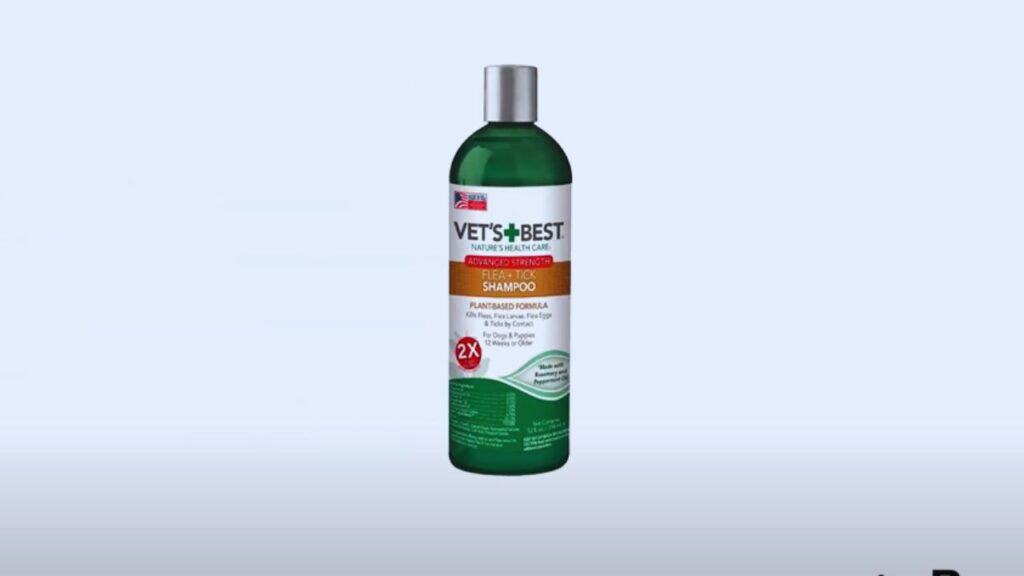
Pros:
- Immediate relief from fleas
- Helps soothe irritated skin
Cons:
- Temporary solution
- Requires frequent use
Effectiveness: Flea shampoos are effective for immediate flea removal but do not provide long-term protection. They are best used in combination with other treatments.
Oral Flea Medications

Pros:
- Convenient administration
- Effective against fleas and ticks
Cons:
- Requires monthly dosing
- Potential side effects in some dogs
Effectiveness: Oral medications are effective and provide long-term protection when administered regularly. They are a good option for dogs that dislike collars.
Flea Sprays

Pros:
- Quick flea elimination
- Can be used on pets and home
Cons:
- Requires frequent application
- Can be messy
Effectiveness: Flea sprays are effective for immediate flea control but need to be used regularly to maintain protection.
Learn if Dachshunds need special collars to provide the right support and comfort for their unique body shape.
Integrating Flea Collars into Your Pet Care Routine
Using a flea collar is most effective when part of a comprehensive flea prevention program. Here’s how to integrate flea collars into your routine:
Regular Grooming
Regular grooming helps identify flea infestations early. Use a flea comb to check your dog’s coat for fleas and eggs. Early detection makes treatment easier and more effective.
Home and Yard Treatment
Treating your home and yard reduces the chances of reinfestation. Use flea sprays and foggers to eliminate fleas from your environment. Regularly wash your dog’s bedding in hot water to kill fleas and eggs.
Consistent Use
Consistency is key to effective flea control. Ensure your dog wears the flea collar as directed. Replace the collar according to the manufacturer’s instructions to maintain continuous protection.
Veterinary Consultation
Consult your veterinarian to choose the best flea control strategy for your dog. Your vet can recommend effective products and provide advice tailored to your dog’s specific needs.
Safety Considerations for Flea Collars
While flea collars are generally safe, it’s essential to use them correctly to avoid potential risks.
Proper Fit
Ensure the collar fits properly. A collar that is too tight can cause discomfort, while one that is too loose may not be effective.
Avoid Overuse
Follow the manufacturer’s instructions regarding duration of use. Prolonged use beyond recommended periods can lead to skin irritation or other issues.
Monitor for Reactions
Watch for any signs of allergic reactions, such as redness, swelling, or itching. If your dog shows any adverse reactions, remove the collar and consult your veterinarian.
Age and Weight Restrictions
Choose a flea collar appropriate for your dog’s age and weight. Some collars are not suitable for puppies or very small dogs.
Environmental Safety
Ensure the collar is safe for your dog’s environment. Some active ingredients may not be suitable for use near water bodies or in certain climates. Discover what size collar is best for a French Bulldog puppy to ensure both safety and comfort during their growing stages.
Expert Tips for Using Flea Collars
Maximize the effectiveness of flea collars with these expert tips:
Read the Instructions
Carefully read and follow the manufacturer’s instructions. Proper application ensures the collar works as intended.
Regular Checks
Regularly check the collar for wear and tear. Replace it if it becomes damaged or if the active ingredients are depleted.
Combine with Other Treatments
For severe infestations, combine flea collars with other treatments like spot-on solutions or oral medications for comprehensive control.
Maintain Cleanliness
Keep your dog’s environment clean. Vacuum regularly and wash bedding to eliminate fleas and their eggs.
Avoid Other Chemicals
Avoid using other flea control chemicals on your dog while using a flea collar. This can prevent potential interactions and skin irritation. Understand if French Bulldogs can wear dog collars and how it affects their neck structure and overall health.
Alternatives to Flea Collars
While flea collars are effective, other options may better suit your dog’s needs or your personal preferences.
Flea Combs
Flea combs help remove fleas and their eggs from your dog’s coat. They are a non-chemical option suitable for sensitive dogs.
Natural Remedies
Natural remedies like diatomaceous earth or essential oils can repel fleas. However, their effectiveness varies and should be used with caution.
Environmental Control
Controlling fleas in your environment is crucial. Regularly clean your home and yard to reduce flea populations and prevent reinfestation.
Conclusion
Flea collars are an effective and convenient solution for protecting your dog from fleas and other pests. When used correctly, they offer long-lasting protection and are a cost-effective option for pet owners. However, for the best results, integrate flea collars into a comprehensive flea prevention program that includes regular grooming, home and yard treatment, and veterinary consultation. Hope so, now you know the answer: do flea collars work on dogs.
Explore the best dog collars for French Bulldogs to keep them comfortable while ensuring durability and style.
By understanding how flea collars work and their benefits, you can make an informed decision to keep your dog healthy and comfortable. Always choose the right collar for your dog’s specific needs and follow the manufacturer’s instructions to ensure maximum effectiveness and safety.
Frequently Asked Questions
Are Flea Collars Safe for Puppies?
Yes, but choose collars specifically designed for puppies. Always consult your veterinarian before using flea collars on young dogs.
Can Flea Collars Be Used on Dogs with Other Pets?
Yes, but ensure each pet has its own collar and that the collars are species-specific. Avoid using dog collars on cats and vice versa.
How Often Should Flea Collars Be Replaced?
Flea collars should be replaced according to the manufacturer’s instructions, typically every six months.
Do Flea Collars Affect Dog Behavior?
Most dogs tolerate flea collars well. However, monitor your dog initially to ensure they do not react negatively to the collar.
Can Flea Collars Help with Tick Prevention?
Yes, many flea collars also repel and kill ticks, providing comprehensive pest control for your dog.

